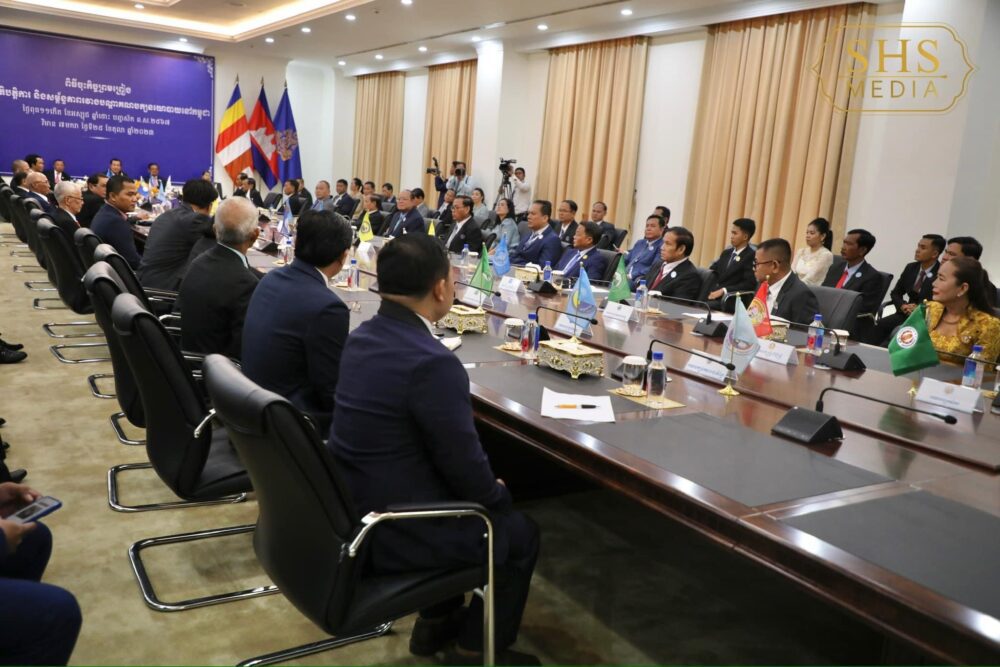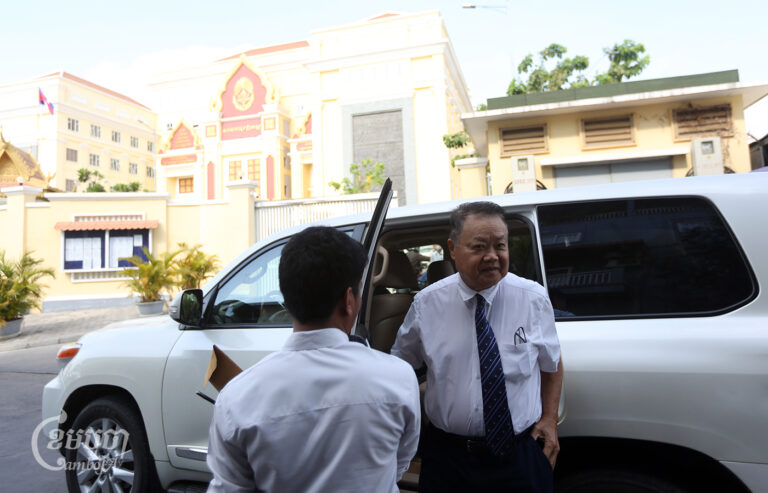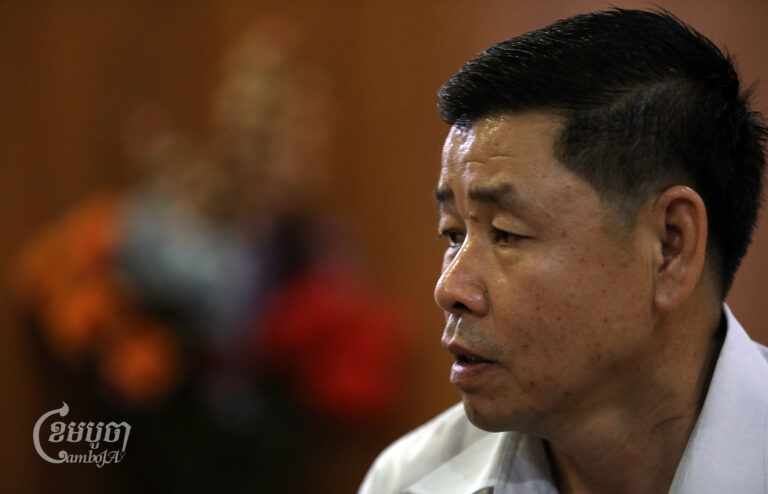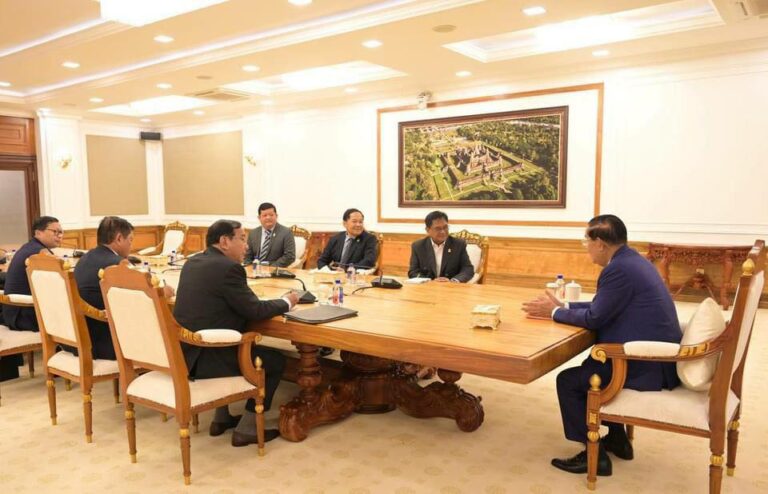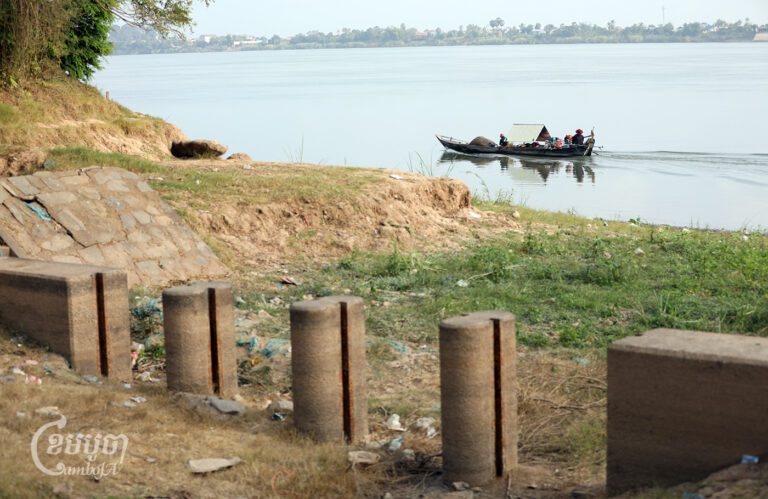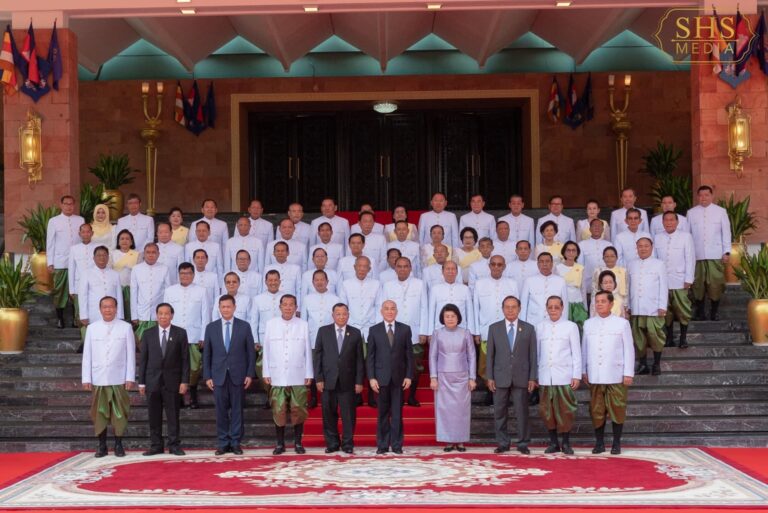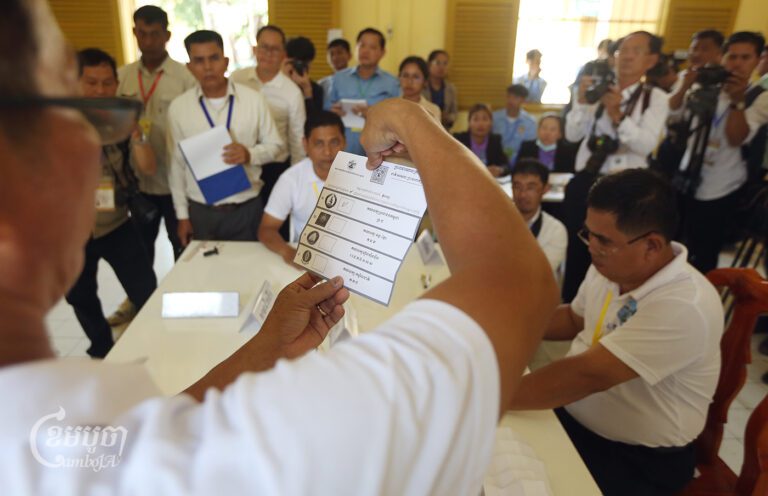Cambodian People’s Party (CPP) and twenty-seven political parties have signed a joint agreement to establish a political alliance in the spirit of national unity, political stability and national development.
The agreement comes two weeks after Candlelight Party formed a coalition with three other minor parties to contest in the Senate election next year and the upcoming general election.
The agreement was signed between CPP president and former Prime Minister Hun Sen and the parties at the CPP headquarters on Wednesday. Some of the parties which joined the alliance include the Cambodian Youth Party, Women’s Party for Women, Beehive Social Democratic Party and the Khmer United National Party.
According to Hun Sen, the largest ruling party, meaning the CPP, “did not use its power to force the smaller parties” into the coalition.
“These parties have come, not as descendants of the CPP, but as partners for the common good of the nation,” he said.
Hun Sen advised the parties with seats in the commune councils to cooperate to ensure candidates’ names are included in the district and province or city council elections.
He also warned civil societies and certain countries from participating in a “revolutionary movement” in Cambodia.
“These days in Cambodia, there still remains a revolution, and I am sending a message to some countries and NGOs that [operate] under the shadow of the revolution movement to withdraw as soon as possible,” he urged. “We will not tolerate you.”
The internal rules of the political alliance will be compiled soon, Hun Sen said, adding that all 28 parties have agreed on eight common goals.
These include the promotion of human rights and social justice, protection of peace and social security, elimination of extremist politics, and cooperation for a free, fair and just election. “Do not campaign against each other during the election campaign and do not [join forces] with other political parties that oppose our allies.”
Pich Sros, president of Cambodian Youth Party, shared that the formation of the political alliance is a “normal political shift in a democratic society”.
He said it represents solidarity between politicians and Cambodians, believing that both groups often disagree as they have different political views.
“It is good to show that Cambodians are not divided. Because of differing political [beliefs], we have seen in the past that our people at the grassroots level, especially political supporters, do not always get along with each other and are discriminated against. As an alliance, members at the grassroots level would stop discriminating against other parties,” he said.
Mam Sonando, president of the Beehive Social Democratic Party, felt that the alliance with CPP would allow him to raise national and local issues with the ruling party, which he could not previously despite being a member of the advisory council.
“In the past, when I was with the supreme advisory council, I was not involved in issues relating to national development. I could only help to seek justice for people,” he said.
Out of 27 parties, which joined the alliance, 14 of them were among 18 political parties, which contested in the seventh national election.
On October 11, four political parties – Candlelight Party, Khmer Will Party, Grassroots Democratic Party and Cambodia Reform – came together to set up “Alliance Towards the Future” to challenge the CPP in the 2027–2028 election.
Candlelight spokesperson Kimsour Phirith said his party welcomed the new political alliance between the CPP and 27 minor parties.
He opined that “political strategy in a democratic society” meant that political parties with similar agendas would often come together.
However, he stressed that the victory of a democratic election depends on people’s support, not because of coalitions with a “lot of political parties” or “few political parties”.
“[Parties] look at the strength of voters, because voters are the determinant of [a party’s] victory,” he said.
Meanwhile, NEC spokesperson Hang Puthea welcomed the formation of the new CPP-minor party alliance, adding that the NEC is preparing a registry for candidates based on the law. This is to ensure that all political parties compete on equal terms.
“When the time comes, the NEC [will] call for the registration of political parties and the nomination of candidates based on the procedures. The NEC will implement strict measures to ensure that all parties have equal rights to compete,” he said.
Political analyst Em Sovannara told CamboJA that the alliance is a “tactic” by the CPP to mobilize smaller parties to avoid being dragged into the coalition formed by Candlelight Party.
“The CPP is afraid that small parties might join their pro-democracy alliance,” he said.
Sovannara also opined that the eight points contained within the new coalition’s agreement, which includes the promotion of human rights, were there to make their “political ties look good”.
“The agreement is just to [make them] look good [although] nothing can be done,” he said. “If CPP itself fails to [promote human rights], how can others promote them? When people protest, they [would] have no right to fully express their opinion.”


